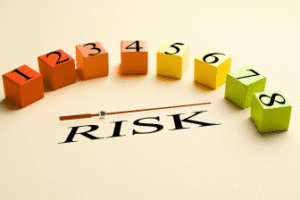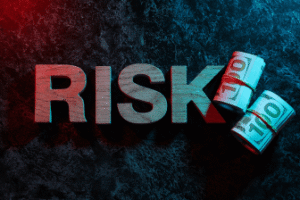
Want to Work in Risk? These FRM Courses Open the Right Doors
Want to Work in Risk? These FRM Courses Open the Right Doors
With the world evolving under conditions of uncertainty—including geopolitical tensions, economic shocks, pandemics, and turbulence in the world of digitalization—risk management has gained importance beyond just being a corporate requirement. It has become a strategic activity that influences business decisions, capital investments, and reputation protection.
Financial risk management courses can unlock some of the most powerful and lucrative careers in the financial world today. If you are an aspiring professional trying to enter a dynamic and high-rewarding business, this could be your ideal path.
Here’s Why Risk Management Is the Job of the Future
Risk exists everywhere: credit risk in lending, market risk in trading, system risk in operations, and reputational risk shaped by public perception. As financial institutions and corporations aim to stay resilient in a world of uncertainties, the demand for professionals who can help manage risk has increased exponentially.
Organizations today are no longer reactive. They seek individuals who can proactively identify weak points, anticipate challenges, and craft effective mitigation strategies.
Risk managers now play a critical role in the health of banks, insurance firms, fintech companies, regulatory agencies, and even non-financial enterprises. As international standards evolve and technologies like AI and blockchain redefine the landscape, professionals with strong theoretical and practical knowledge of risk management are highly valued.
The Best Financial Risk Management Courses in India That Open Doors
- FRM (Financial Risk Manager) by GARP: The FRM qualification by the Global Association of Risk Professionals (GARP) is one of the most widely recognized risk credentials globally. Often described as the gold standard for aspiring risk professionals, it covers quantitative analysis, financial markets, credit risk, market risk, and operational risk. Professionals who hold the FRM designation frequently find roles in investment banks, consulting firms, and regulatory bodies. The FRM course fees are also comparatively affordable when measured against the value and global recognition it offers.
- CFA Level 1 with a Risk Specialization: Although the Chartered Financial Analyst (CFA) qualification is typically known for investment management, it also offers a strong foundation for risk-related roles. These include positions in credit risk, portfolio risk, and equity risk assessment. Many CFA charterholders go on to become senior risk analysts or lead risk strategy teams in asset management firms.
- PRM™ (Professional Risk Manager) by PRMIA: Offered by the Professional Risk Managers’ International Association (PRMIA), this exam is flexible in structure. It caters to professionals interested in both the academic and practical aspects of risk theory. PRM is especially well-suited for careers in banking and the fintech sector.
- MBA in Financial Risk Management: Many universities now offer specialized MBAs in risk management. These programs combine core finance subjects with electives in enterprise risk, insurance, compliance, and quantitative techniques. What’s the advantage? You gain both a management degree and specialized training in risk management—ideal preparation for leadership roles.
Skills That These Courses Will Teach You
- Quantitative Analysis: Learn to understand models and interpret financial data to assess risks.
- Regulatory Knowledge: Get trained in Basel III norms, stress testing, capital adequacy, and compliance standards.
- Scenario Planning and Forecasting: Master the ability to model credit or market crises and plan for contingencies.
- Risk-Based Decision-Making: Use data-driven tools to support strategic and operational decision-making.
- Communication and Reporting: Translate complex risk metrics into actionable insights for senior management.
These certifications not only improve your technical skills but also enhance your credibility in the eyes of employers. Surprisingly, one or two well-chosen courses can be game-changers—helping you land interviews at top financial firms or even secure internal promotions.
Deciding Which Course to Pursue
When selecting a financial risk management course, consider your academic background, career goals, and time availability.
For example:
- If you’re currently working and need flexibility, FRM or PRM are excellent choices.
- If you’re a student or early-career professional, an MBA in Risk Management will offer broader exposure.
- If you’re already in finance but want to shift to a risk-related role, a short executive program or the CFA with a risk track might suit you.
Also, weigh each course’s industry reputation and alumni network. Programs backed by leading industry professionals or organizations often offer stronger career services, internship opportunities, and valuable networking channels.
The Place of Global Risk Management Institute (GRMI)
The Global Risk Management Institute (GRMI) has significantly reshaped India’s risk education ecosystem. GRMI offers a Post Graduate Program in Risk Management (PGP-RM) in collaboration with global risk experts.
Its curriculum is developed by specialists from international banks, consulting firms, and Fortune 500 companies. The program covers key areas like credit and market risks, operational risk, regulatory frameworks, risk analytics, cyber threats, and ESG (Environmental, Social, and Governance) risk.
What sets GRMI apart is its practical approach. The program emphasizes real-world learning through case studies, simulations, and corporate internships. Unlike traditional theoretical programs, GRMI ensures students gain actionable skills needed in today’s risk environment.
GRMI’s strong connections with recruiters also ensure high placement rates. Graduates are often hired for top-tier risk positions across industries. For those who want both a robust academic foundation and real-world exposure, GRMI offers an ideal platform to launch a successful risk management career.
Conclusion
Risk management is more than just a profession—it’s a mindset. It requires the ability to be analytical, predictive, and adaptable. With increasing complexity and interdependence in global markets, organizations are looking to risk professionals to safeguard their future.
Choosing the right financial risk management course is the first step in this transformative journey. Whether it’s FRM, PRM, CFA, or a practical program like the one offered by GRMI, the right education can position you as a valuable asset in today’s fast-evolving economy.
You may also like

Which careers are truly safe from layoffs in 2026?

What Are the 3 Types of Credit Risk?


